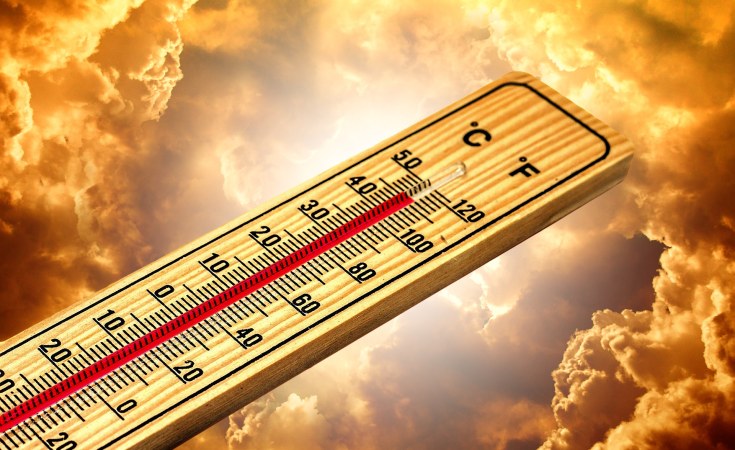As parts of the world face extreme hot weather, there is an advisory on how to cope with rising temperatures. When the weather is too hot, there are health risks. During heat waves, more people than usual get seriously ill or die.
People who have serious or long-term illnesses including heart or lung conditions, diabetes, kidney disease, Parkinson's disease, or some mental health conditions are at risk according to the UK's National Health Service (NHS).
People who are on multiple medicines that may make them more likely to be badly affected by hot weather, older people - especially those over 75 and female are also at risk.
Below are tips for coping with hot weather.
Report any signs of heat exhaustion
The government of South Sudan has also instructed parents not to allow children to play outdoors and asked them to report any signs of heat exhaustion or heatstroke.
The country's health ministry stated that "extended periods of high day and night-time temperatures create cumulative physiological stress on the human body."
This, the ministry said, exacerbates the top causes of death globally, including respiratory and cardiovascular diseases, diabetes mellitus, and renal disease.
The health ministry advised people to reduce the heat load inside the apartment or house, close windows and shutters especially those facing the sun during the day, and turn off artificial lighting and as many electrical devices as possible.
The residents are also required to hang shades, draperies, awnings, or louvers on windows that receive morning or afternoon sun, and hang wet towels to cool down the room air.
"Electric fans may provide relief, but when the temperature is above 35 degrees centigrade, may not prevent heat-related illness. It is important to drink fluids," the advisory says.
Those living in air-conditioned houses were advised to close the doors and windows and conserve electricity not needed to keep them cool, to ensure that power remains available and reduce the chance of a community-wide outage.
For beddings, the ministry urged the use of light bed linen and sheets, and no cushions to avoid heat accumulation.
Drink water, avoid alcohol and too much caffeine
According to the World Health Organization (WHO), people have to drink water regularly and avoid alcohol and too much caffeine and sugar, which are dehydrating.
They are also urged to eat small but frequent meals and to avoid foods that are high in protein.
"Elderly or sick people living alone should be visited at least daily. If a person is taking medication, ask the treating doctor how it can influence thermoregulation and the fluid balance."
Have cold food and drinks
According to www.nhs.uk it is better to have cold food and drinks, avoid alcohol, caffeine, and hot drinks, and have a cool shower or put cool water on your skin or clothes.
"Keep your living space cool. Close windows during the day and open them at night when the temperature outside has gone down."
According to the WHO, people should wear light, loose-fitting clothes of natural materials.
"If you go outside, wear a wide-brimmed hat or cap and sunglasses. Use light bed linen and sheets, and no cushions, to avoid heat accumulation."
What should I do if I feel unwell during a heat wave?
WHO says that if you feel dizzy, weak, and anxious or have intense thirst and headache during a heat wave, it is best to move to a cool place as soon as possible and measure your body temperature.
Drink some water or fruit juice to rehydrate.
Rest immediately in a cool place if you have painful muscular spasms (particularly in the legs, arms, or abdomen), and drink oral rehydration solutions containing electrolytes.
Medical attention is needed if heat cramps last more than one hour.
Consult your doctor if you feel unusual symptoms or if symptoms persist.


